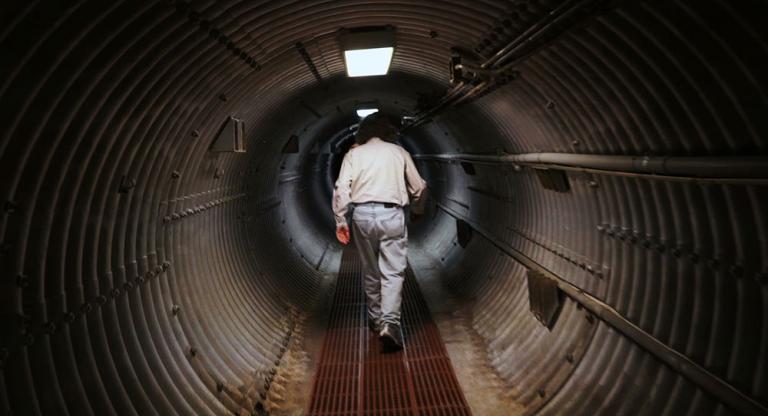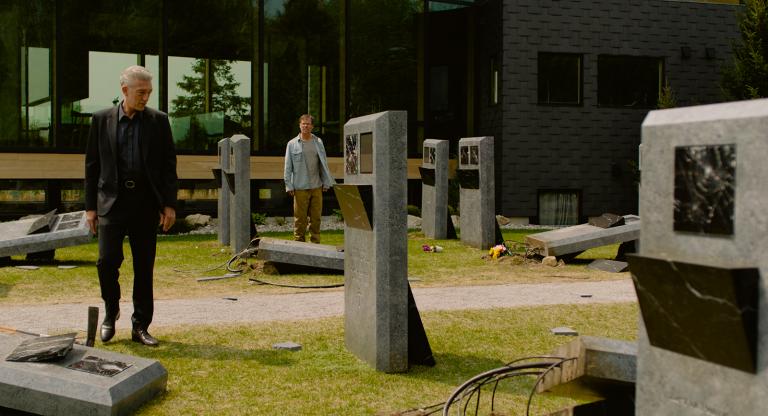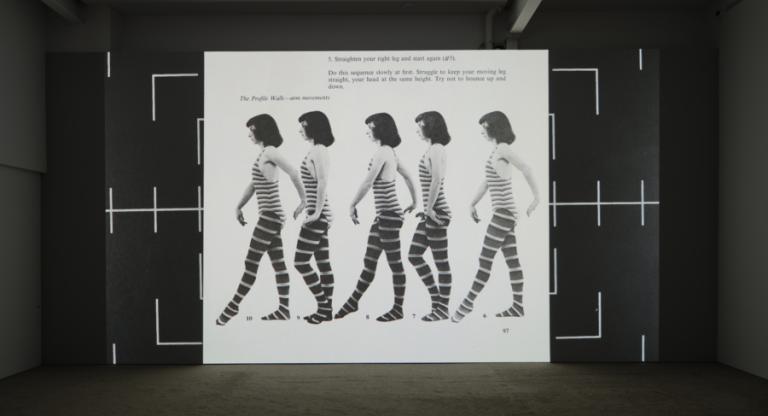Japanese legend Takeshi Kitano’s Hana-bi (1997) is a film of contrasts: between life’s beauties and its tragedies, between serenity and brutality, between an artist and their public persona. Retaining some narrative similarities to Kitano’s earlier underground crime fare (the plot is essentially a reworking of his directorial debut Violent Cop [1989]), as well as his signature scenes of calm punctuated by stochastic bursts of savagery, Kitano refines his fixations into a beautiful distillation. Kitano plays Nishi, a former detective who cares for his terminally ill wife. He borrows money from the yakuza to pay for his wife’s medical care and robs banks to pay them back. On the run from both the police and his creditors, Nishi brings his wife on one last road trip, taking in gorgeous scenery and reminiscing on the mistakes and violence that have led him to this point.
For US audiences who were first introduced to Kitano through his ’90s neo-noir films (Boiling Point [1990], Sonatine [1993]), as well as his appearance in Robert Longo’s Johnny Mnemonic (1995), it’s hard to imagine the degree to which the filmmaker was struggling to be taken seriously in his home country. The comedic persona of “Beat" Takeshi (his stage name since the ’70s) loomed over his career, with many critics and viewers considering his own directorial efforts to be nothing more than a hobby; the amusement of a celebrity, not an auteur. He was already six features in when Hana-bi changed all that, winning the Golden Lion award at the 1997 Venice Film Festival and securing his spot as a serious director in Japan.
Mortality was absolutely on Kitano’s mind—he had survived a motorcycle accident a few years prior, which left half of his face partially paralyzed. Hana-bi is his first movie since the crash in which Kitano appears on screen, and he embraces his face with his camera, documenting the features that have been altered by his brush with fatality. When Nishi's partner is shot and paralyzed, Nishi sends him a package of art supplies, which prompts him to take up painting. The resulting works, closeups of which are woven throughout the film, are actually Kitano’s from his own recovery period. His emotional and physical healing are on display for the viewer as the character he plays marches toward death.
Hana-bi screens tonight at Japan Society on 35mm for its 25th anniversary.





